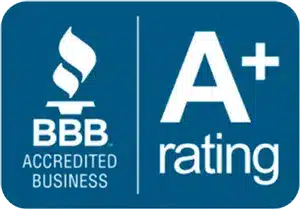The Human Immunodeficiency Virus, in short HIV, is a serious illness that affects a large number of people in Oklahoma. If left untreated, then it can lead to AIDS (Acquired Immunodeficiency Syndrome). At Equality Health, we provide effective treatment to manage and control HIV. With our specialized HIV treatment services in Oklahoma, we prevent the development of AIDS, extending life expectancy and lowering the risk of transmission to others. We use a combination of drugs to strengthen the immune system and bring the viral load down to undetectable levels. Connect with us right away to prevent the spread of HIV in Oklahoma.

Basics of HIV Treatment In Oklahoma
We make sure our patients with HIV have access to high-quality medical care and treatment. Our treatment at Equality Health involves proper diagnosis, and HIV testing in Oklahoma with medication management, counseling, and support. It includes two main HIV treatments in Oklahoma, and they are:
Antiretroviral therapy (ART)
One of our treatments for HIV patients is antiretroviral therapy (ART). In this therapy, we use a variety of drugs to suppress HIV and impede its growth inside the body effectively. Although ART does not cure HIV, it can significantly increase the lifespan and quality of life of HIV-positive people. Here are some of the drug classes of ART therapy:
- Nucleoside Reverse Transcriptase Inhibitors (NRTIs): We use these medications to prevent the virus from reproducing its genetic material by interfering with the enzyme.
- NNRTIs (non-nucleoside reverse transcriptase inhibitors): These medications work differently from NRTIs and inhibit the viral replication-related enzyme.
- Protease Inhibitors (PIs): At Equality Health, we use these medications to prevent the virus from using a different enzyme to produce contagious viral particles.
- Integrase Inhibitors: These medications stop the integrase enzyme from integrating viral DNA into the DNA of the host cell.
- Fusion Inhibitors and Entry Inhibitors: These medications stop HIV from entering cells by blocking its fusion and entry.
Combination Therapy
Combination Therapy is also referred to as combination ART. It simultaneously targets the virus at different stages of its life cycle with several medications from various classes. This strategy works well to delay the progression of HIV, maintain immune function, and lower the viral load to undetectable levels. It involves the following:
- Lowering the viral load: This therapy brings the body’s viral load down to undetectable levels by taking several different medications.
- Aiming to reduce drug resistance: It is tougher for the virus to develop resistance to the treatment when different drugs target the virus in different ways.
- Increasing Efficiency: The efficacy of treatment increases when we combine the drugs with other mechanisms of combination therapy.
- Enhancing Compliance: By using a fixed-dose combination of medications, we encourage better adherence to the recommended medication schedule.
Initiating HIV Treatment in Oklahoma
Before we start your treatment, we look into the two major factors, i.e., the viral load and CD4 cell count. Immune cells, called CD4 cells, are a vital component of the immune system. The amount of HIV in a person’s blood is also referred to as viral load. We initiate the treatment in the following ways:
- By Counting the CD4 Cells: No matter the CD4 count, early HIV treatment can protect the immune system and reduce the risk of HIV-related complications. At Equality Health, we start the treatment right away to safeguard the immune system and lower the risk of opportunistic infections.
- Viral Load: Generally, we advise starting treatment if a person has a detectable viral load (even if their CD4 count is high). The risk of spreading the virus decreases, and overall health is improved by lowering the viral load to undetectable levels. To lower the viral load and safeguard the immune system, people with a high viral load (e.g., tens of thousands or more copies/mL) should begin treatment right away.
Antiretroviral Medications
With a better understanding of antiretroviral medications, we create personalized and successful treatment plans. Here are some of the medications that we use in our treatment plans:
|
Drug Class |
How it works |
Name of Medications |
| Nucleoside Reverse Transcriptase Inhibitors (NRTIs) | By imitating nucleosides (the components of DNA and RNA), NRTIs throw a spanner in the viral machinery. The virus is unable to effectively extend its genetic code when it incorporates these false building blocks into its genetic material. |
|
| Non-Nucleoside Reverse Transcriptase Inhibitors (NNRTIs) | NNRTIs enter the reverse transcriptase enzyme and change its structure to prevent it from being used by viruses to replicate. |
|
| Integrase Inhibitors (INSTIs) | By inhibiting the integrase enzyme, INSTIs stop HIV from placing its genetic material into the DNA of the host cell. |
|
| Protease Inhibitors (PIs) | Protease inhibitors (PIs) prevent infected cells from assembling new HIV particles by blocking a protein. |
|
Monitoring HIV Treatment Progress
Monitoring your treatment processes serves as a compass for well-being and a marker of progress in the fight against HIV. Regularly monitoring a patient’s overall health status is extremely important. At Equality Health, while monitoring, we perform frequent tests to track CD4 cell counts, viral load testing, and other laboratory markers. Achieving and maintaining viral suppression is the main objective of HIV treatment. As a result, it is crucial to routinely track different laboratory markers like CD4 cell counts and viral load testing.
We frequently track the effectiveness of HIV treatment as it’s the only way to optimum health and a good quality of life. Based on unique treatment plans, we will conduct monitoring sessions. In the course of early treatment, we will schedule these sessions more frequently. This process helps us to monitor the overall progress and, if necessary, adjust medication dosage. We will advise fewer monitoring sessions as we progress and stabilize the disease’s management.
At Equality Health, we make sure that every person’s journey is precisely mapped, leading to a future that is free from the burdens of HIV. You can also get PrEP for HIV prevention in Oklahoma with us which helps prevent HIV before diagnosis.
Adherence to HIV Treatment
Adherence helps the immune system develop, enhancing the body’s capacity to fend off infections and other diseases. We encourage the management of HIV with proper adherence to improve the patient’s overall quality of life. Here are some of the strategies that will help to maintain adherence:
- Make a Schedule for Your Medications: Take your medications daily at the same time every day. Make sure to make time to coincide with routine tasks like eating or brushing your teeth.
- Seek Assistance: Discuss any adherence problems you have with the medical professional or a support group. They can offer advice and support in resolving issues.
- Utilize a Support System: Give a family member or trusted friend a copy of your medication schedule so they can serve as a reminder to take your medication and add another level of support.
- Reminders for medication use: Set alarms, use phone apps, or keep track of your pills to serve as a reminder to take your medications. In a hectic schedule, these reminders can be lifesavers.
- Follow Your Progress: Record your medication usage, making note of any missed doses. Review this log frequently to spot trends and figure out how to increase adherence.
Managing the Side Effects of HIV Treatment
Some of the common side effects of HIV Medications are:
- Diarrhea
- Nausea and Vomiting
- Fatigue and Weakness
- Headache
- Insomnia
Here are some helpful tips to manage your side effects:
- Properly Communicating with our Medical Professionals: At Equality Health, we suggest having regular, open communication with the medical staff. In order to do better in your personalized treatments and achieve better results, promptly report any side effects.
- Proper Rest: To prevent fatigue and weakness, schedule breaks into your activities on a regular basis and make sure you get enough sleep.
- Food and Water Intake: To lessen nausea from taking medications, take them with food. You should also stay hydrated to manage any gastrointestinal side effects.
- Take Good Care of Your Skin: If you develop a rash, ask your doctor about the right creams or treatments and keep your skin clean.
- Be Mindful of Nonprescription Medication: Before using random medications to treat symptoms like headaches or diarrhea, you first need to consult with your doctor to make sure they won’t interfere with your HIV medications and treatment.
We at Equality Health understand the value of controlling and minimizing any potential side effects of HIV medication.
Tailoring HIV Treatment for Specific Populations
HIV is a serious illness that necessitates individualized treatment plans, especially when taking into account particular populations. At Equality Health, we recognize the value of individualized care. Thus, we offer specialized services to address the special requirements of every stage of life, including pregnant women, young children, teenagers, older adults, and people with particular medical conditions.
HIV-Positive Women in Pregnancy
The treatment for HIV is complicated for pregnant women. Our main goal of treatment is to stop mother-to-child transmission while protecting the mother’s and the infant’s health. We advise our pregnant patients to use highly active antiretroviral therapy (HAART) to lower viral loads. It protects the unborn child from infection. It is extremely essential to closely monitor viral load, CD4 cell count, and medication compliance.
Young Children and Teenagers
At Equality Health, we prepare individualized strategies for the treatment of HIV in children and adolescents. We also consider their particular physiological and psychological requirements. Moreover, antiretroviral drug formulations for children are readily available. And we prescribe the correct dosage and adherence to those drugs. To keep up with the treatments, we provide age-appropriate HIV education, mental health services, and support for adhering to treatment.
Older adults, People with Comorbidities, and People with particular Medical Conditions
A thorough approach to HIV management is necessary for people with comorbidities or older adults. While providing treatment to older adults or people with comorbidities, we carefully consider if they have any existing illnesses (like diabetes, hepatitis, or mental health disorders). We cautiously prepare the medications for treatment by carefully considering those illnesses and their drugs. Moreover, we also offer Hep C testing and Hep C treatment services in Oklahoma.
We understand the challenges these specific populations with HIV face. That’s why our healthcare professionals ensure an individualized strategy for HIV management. Our treatment plan not only enhances the outcomes but also improves the general quality of life.
Treatment as Prevention with “Undetectable = Untransmittable” (U=U)
At Equality Health, we raise awareness of the revolutionary idea of “Undetectable = Untransmittable” (U=U). It means that people with HIV who are receiving effective antiretroviral therapy (ART) cannot transmit the virus to their sexual partners. Their viral loads are undetectable. In other words, HIV levels in the blood are so low when the viral load is undetectable that sexual transmission of the virus is practically impossible. In addition to lowering HIV stigma, U=U offers hope and empowers people living with HIV to take charge of their health and relationships.
To ensure a future with less HIV transmission, we continue the concept of U=U. At Equality Health, we encourage routine testing and supporting treatment adherence.
Contact Equality Health For HIV Treatment In Oklahoma
If you are seeking top-notch care for HIV patients, then we provide specialized, convenient, and accessible HIV treatment services in Oklahoma. Our skilled healthcare professionals provide individualized treatment plans that cater to each person’s particular needs and circumstances. We are here to offer expert care and support throughout your journey to optimum health and wellness. Take the first step toward a healthier, more promising future. Get in touch with Equality Health right away. Call us at (405) 761-2762 and join forces with Equality Health to defeat HIV together! We offer HIV treatment in Edmond, Moore, Norman, and Oklahoma City.
Frequently Asked Questions (FAQs)
No, HIV can not be cured even at the earliest stages of infection. However, its effects on the immune system can be managed with the help of an early diagnosis and treatment. By getting tested quickly, you can reduce the risk of developing AIDS, which weakens your immune system. You can prevent the HIV infection from spreading by testing right away and starting antiretroviral therapy (ART) regimens. By doing this, you can prevent the immune system from weakening, enabling long-term management of the condition.
HIV treatment is lifelong in order to continue to keep the viral load suppressed and the immune system protected.
You should begin your HIV treatment as soon as possible after you get diagnosed. The early phase of HIV infection is also known as acute HIV infection. HIV patients who have early HIV infection, AIDS-defining illnesses, or pregnancy must receive treatment right away. Antiretroviral Therapy (ART) must be used as a starting point, and you must take your medications as directed.
You can live as long as an HIV-negative person. But you must have access to good and high-quality medical care and should follow your HIV treatment properly. This should keep your viral load undetectable and enable higher CD4 counts. Your life expectancy can be affected when you have a chronic illness like cancer, liver disease, heart disease, tuberculosis (TB), candidiasis, or pneumonia.
The best HIV treatment options in Oklahoma are available at Equality Health. As part of our treatment plans, we offer antiretroviral therapy (ART) and combination therapy. We work closely with other specialists and healthcare professionals to deliver seamless and ongoing care to our patients. Our main goal is to educate people so they can make proper decisions and reduce the risk of transmission.


